Education
Skills competition beats Covid restrictions
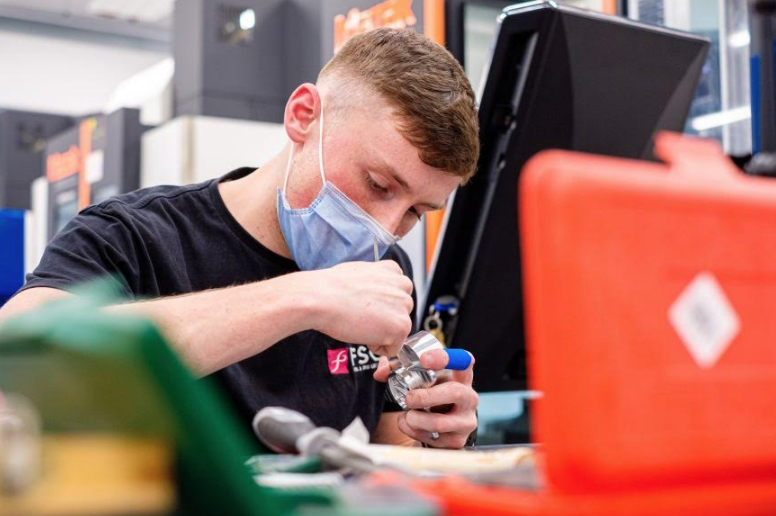
THE ADVANCED Manufacturing Skills Academy at the University of Wales Trinity Saint David (UWTSD) recently hosted the finals of Skills Competition Wales.
Entrants visited the Academy on April 21 and 22 to complete challenges as part of the CNC section of the competition, which focuses on cutting metal using a computer-controlled machine.
Due to Covid-19 restrictions, the entrants completed their challenges two at a time in a controlled environment using machines that are well spaced apart.
Some of the entrants are apprentices at the Academy, which opened its doors last year with the aim of building the skills needed to deliver technologies that keep Wales’ manufacturing industry globally competitive.
It provides students with technical training to degree level, all within one facility in the IQ building in SA1, Swansea.
Working in partnership with three leading manufacturers – Mazak (machine tool supplier) Renishaw (measuring/inspection equipment) and Sandvik Coromant (material cutting tools supplier) the Academy is fully equipped to cater for the needs of a multitude of industry sectors.
The apprentices at the Academy are all currently employed trainee mechanical engineers who have been given the opportunity to study at the Academy as part of their apprenticeship programme to further enhance their technical skills using modern, high-end industry-standard equipment.
“We are able to provide them with full exposure to the technology and allow them to have valuable machine time without the added pressure often found within a manufacturing environment,” says Lee Pratt, manager of the Academy at UWTSD.
“To say I’m proud of these young engineers is an understatement!
“Given the limited amount of time to prepare for the skills competition due to COVID restrictions, they have gone above and beyond and are a credit to their employers.
“A big thanks to Adam Youens and the team for organising such a great competition, Mark Aspinall from competition sponsors Quickgrind and our 3 judges Steve Franklin, Steve Cope and Andrew John. I’m sure next year will be even bigger and better. On to the next competition now!”
Lee said hosting Skills Competition Wales was an important step in highlighting the work of the Academy as well as creating opportunities for its apprentices.
“This competition was an exciting opportunity to raise the profile of the Academy within the industry sector and hopefully attract further business,” said Lee. “We entered the apprentices into the competition to not only give them a platform to display their talents nationwide but also enhance their training with us.
“We believe that by taking them out of their comfort zone and placing them in a competition environment will expose them to some of the demands and pressures found daily in a modern manufacturing environment.”
The competition was held over a two-day period, during which competitors had seven hours to produce a component from a 2D drawing and 3D CAD (computer-aided design) model with the use of CAM (computer-aided manufacturing) software and a CNC (computer numerical control) machining centre.
If the Academy’s apprentices are successful in the competition, they will be invited to attend the awards ceremony, which is usually held in Cardiff but is likely to be online this year due to Covid-19.
“We will then be putting them forward to compete in the World Skills Competition and hopefully gain squad selection,” said Lee. “They will then undertake a two-year training programme building up to the global competition due to take place in France 2023.”
The Advanced Manufacturing Skills Academy at the University of Wales Trinity Saint David (UWTSD) hosted the finals of Skills Competition Wales
The competition comes at the end of a very positive first year for the Academy. It has run a highly successful pilot course with its first cohort of apprentices and has received some excellent feedback from industry, with employers reporting a significant rise in both ability and confidence amongst their apprentices.
“We are looking to further expand this training to upskill the existing workforce through a suite of bite size training modules in various disciplines,” said Lee.
This comes at a time when the impact of Covid-19 has heightened the need for these skills within the various industries served by the Academy.
Graduates equipped with high-level skills have a vital role to play in helping to stimulate economic growth during these uncertain times and beyond, and UWTSD has been working closely with Welsh Government, local authorities, and industry partners to deliver the skills and opportunities that will help rebuild the fabric of communities in Wales.
Education
Research reveals nearly half of children in Wales had additional learning needs

A NEW study has highlighted the prevalence of additional learning needs, formerly known as special educational needs, among under 16-year-olds in Wales. The findings come with a policy briefing, calling for a robust review of processes used to recognise such issues and more inclusive learning support for all children nationally.
The research and policy reports, led by the University of Bristol and funded by the Nuffield Foundation, found nearly half (47.9%) of children born in 2002/2003 were identified with some form of additional learning needs (ALN) at some point during their schooling. This was shown to have the biggest impact on academic achievement across all Key Stages of their education.
Lead author Dr Cathryn Knight, Senior Lecturer in Psychology of Education at the University of Bristol, said: “Our findings clearly challenge the notion that learning needs only affect a minority of learners. Key common factors increasing the likelihood of being identified with SEN also emerged, emphasising the importance of recognising the child’s environment and understanding their individual situation to effectively support their learning needs.”
Researchers from the University’s School of Education and Swansea University analysed data from more than 200,000 children in Wales, born between 2002 and 2009, to understand the levels of SEN and its impact on academic achievement.
Findings revealed that the earlier the additional needs emerged and were recognised, and the longer their education was spent with these known needs, the less likely they were to meet nationally expected levels of attainment.
Dr Knight said: “Our research suggests the former SEN system in Wales was unable to effectively support students to mitigate the negative impact of SEN on their grades. This underscores the substantial toll of SEN on academic achievement. To improve academic attainment levels in Wales, it is crucial to prioritise effective support for this very large group of learners.”
Learners having free school meals (FSM) throughout their education were found to be four times more likely to be identified with SEN compared to those not in receipt of free meals. Those born in the most deprived neighbourhoods were shown to be even more likely (4.6 times) to be identified with SEN.
The study also showed boys were much (5.5 times) more likely to be identified with SEN than girls. Children with higher school attendance had a lower likelihood of SEN identification and learners born in the summer, so younger in their year group, were three times more likely to be identified with SEN than those born in the autumn.
Dr Knight said: “This raises concerns about the effectiveness of SEN identification processes, particularly given the unexpectedly high number of learners identified with SEN. It suggests a potential issue of over- or under-identification of certain children.”
The main policy recommendations in the report were to prioritise inclusive educational initiatives that recognise and support all children. The substantial impact of SEN on children’s grades, raises questions about how children with learning needs can be supported to show progression within the education system. Therefore, consideration of more inclusive assessment practices is recommended. The report also calls for current methods used to identify learning need to be rigorously reviewed, with a new focus on ensuring accuracy, fairness, and inclusivity.
The research mirrors similar national findings. Evidence from the Education Policy Institute in England also found a high level (40.7%) of SEND (Special Educational Needs and Disability) identification. Other research, published in the British Educational Research Journal, has also shown that children with SEND in England are also far less likely to meet expected learning standards than their peers at Key Stage 1.
Dr Knight said: “We also need longer-term evidence within Wales and across the UK in order to develop a fuller understanding of the challenges. This includes possible systematic issues with how learning needs are recognised and their subsequent impact on attainment.”
Education
School children focus on Pembrokeshire’s renewable energy future
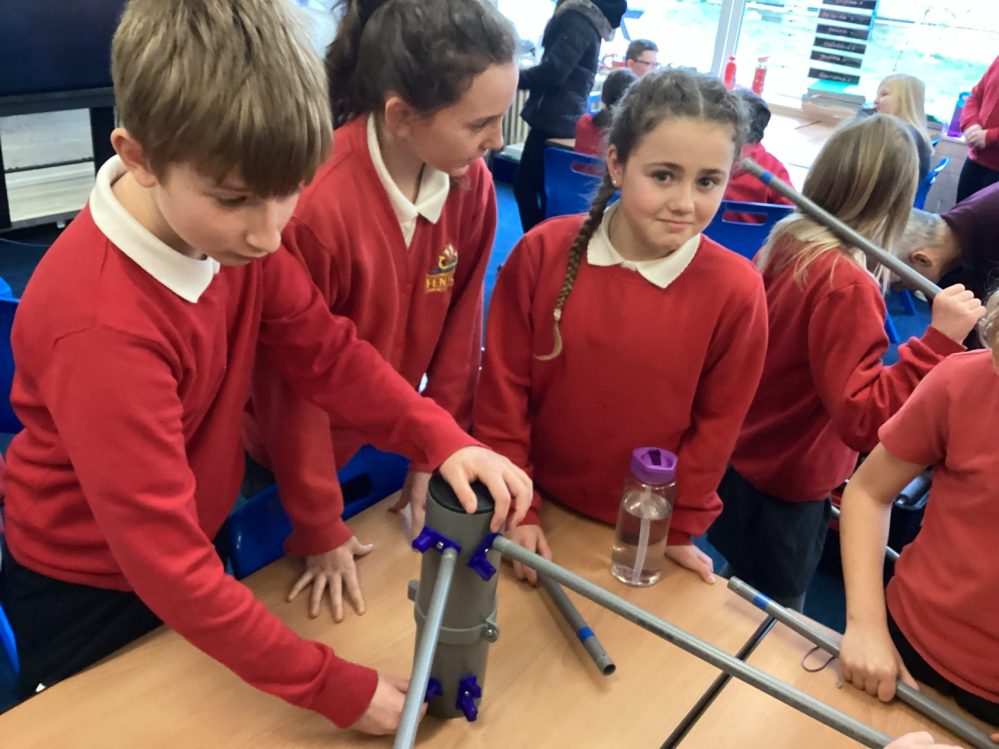
FENTON COMMUNITY PRIMARY SCHOOL welcomed renewable energy experts to help Year 5 and 6 learners broaden their knowledge as part of their Marine Energy Project.
During the summer term Blue Gem Wind, Pembrokeshire Coastal Forum and the Darwin Experience have discussed Pembrokeshire’s importance in the renewable energy sector and low carbon technologies with the school children.
Learners designed and built models of different anchorage structures for offshore turbines, and learnt from the Darwin Centre about the different marine organisms that might colonise them.
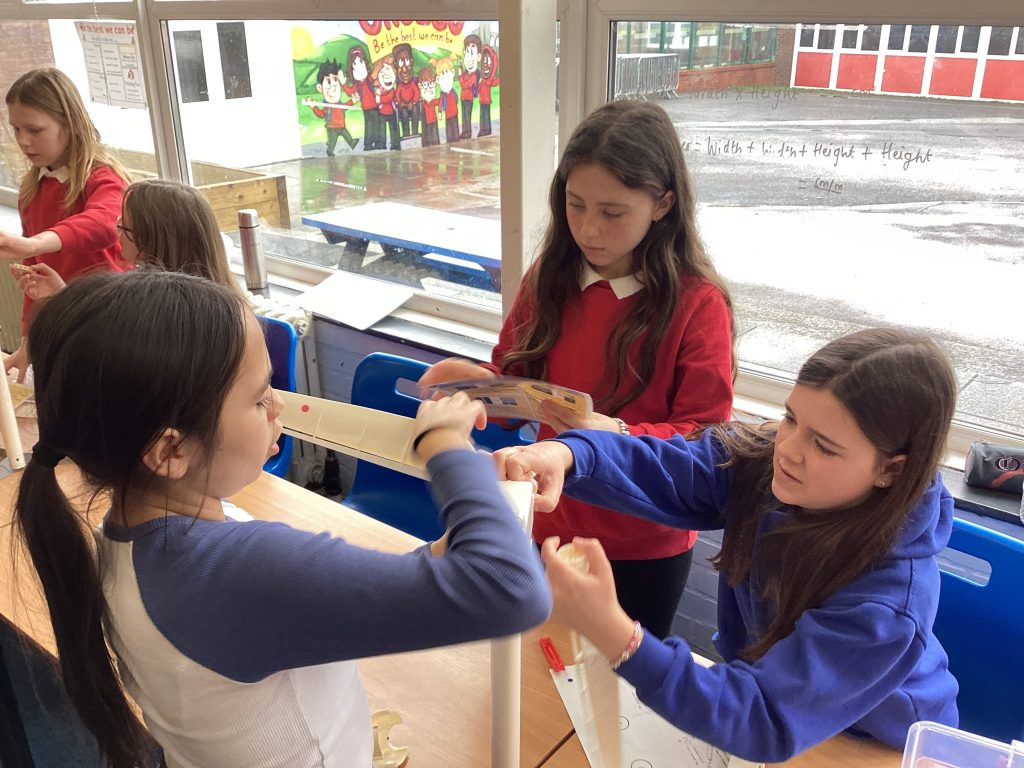
They pitched their design ideas, with a combination of class designs being built and deployed at the Marine Energy Test Area (META) in Milford Haven by Pembrokeshire Coastal Forum.
The visits have inspired many new ideas and possibilities for the future of the learners.
Summer Marshall (Year 6) explained: “It was a great opportunity for our designs to be actually made into something for a real-life purpose.”
“If it wasn’t for this project I wouldn’t have learned about the importance of marine habitats and how these are linked to our future,” added TJ Hill (Year 6)
“It is really important because a lot of future jobs will be based around renewable energy and technology,” said Milly Badger (Year 6).
“From having Blue Gem Wind, META and Darwin visit, it’s made me think about a job in renewable energy,” added Oscar Davies (Year 6).
Acting Executive Headteacher Gareth Thomas said: “The project has enabled development of careers and work-related experiences with our learners. Direct industry engagement has been crucial to motivate our learners to think about the future jobs in Pembrokeshire and the life they may lead here.”
Year 5 and 6 teachers Leah Hackett, Matthew Vaughan and Mike Lowde agreed that many of their pupils could work in the renewable industry in future.
“Hopefully, after this, we have a group of enthusiastic pupils who already have a keen understanding of the benefits of renewable energy and the place it holds in Pembrokeshire and the wider world,” they added.
Education
Pupils delight in ice cream treat from Pembrokeshire’s number one van

CHILDREN at Ysgol Caer Elen in Haverfordwest were treated to a delightful surprise on Tuesday when they were all given the opportunity to enjoy ice cream, generously provided by Mr McGeown and his family.
The delicious ice cream, a highlight of the school’s summer celebrations, was not just a treat for the pupils but also a testament to the McGeown family’s commitment to supporting educational projects. The funds raised by the family have been donated to the school, aimed at enhancing various school initiatives.
The joyous event was made even more special by the efforts of volunteers Martin, Sian, Amirah, Jack, and Alyannah, who served the ice cream. Their contribution ensured that the occasion was filled with a wonderful and happy atmosphere.

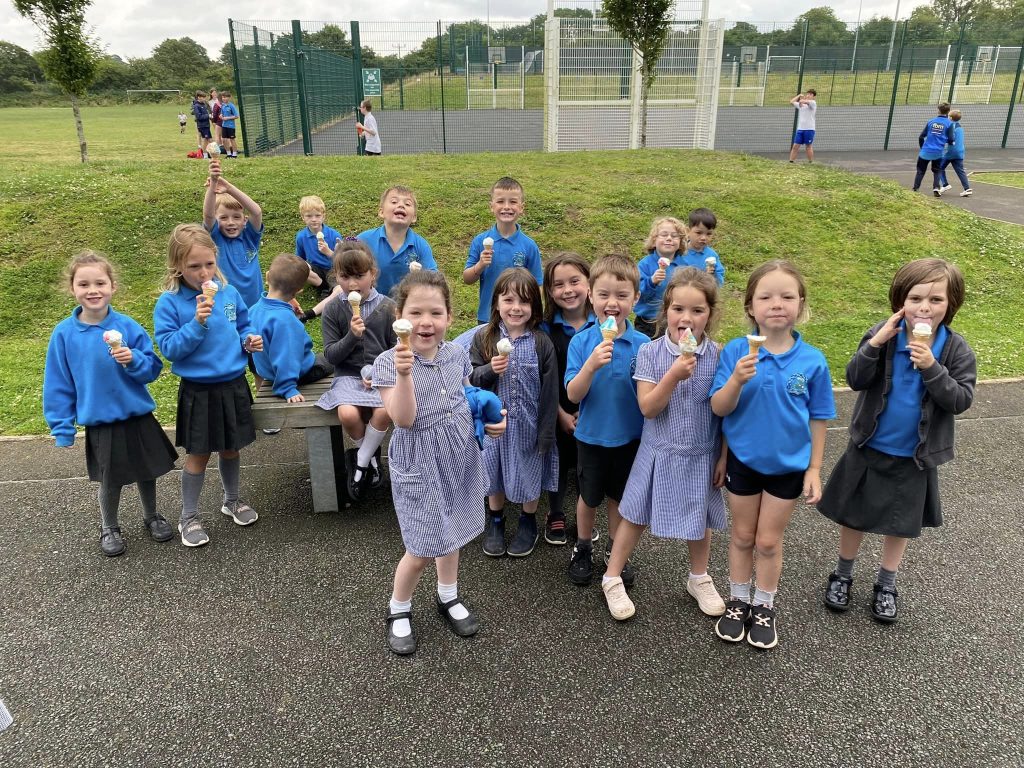
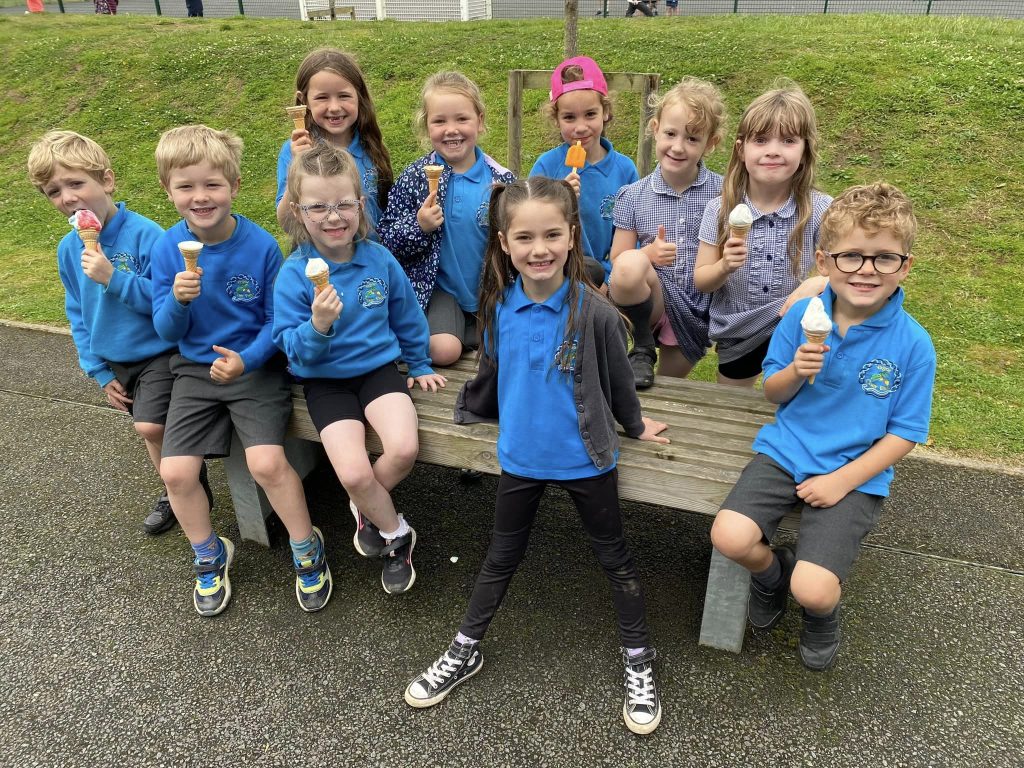


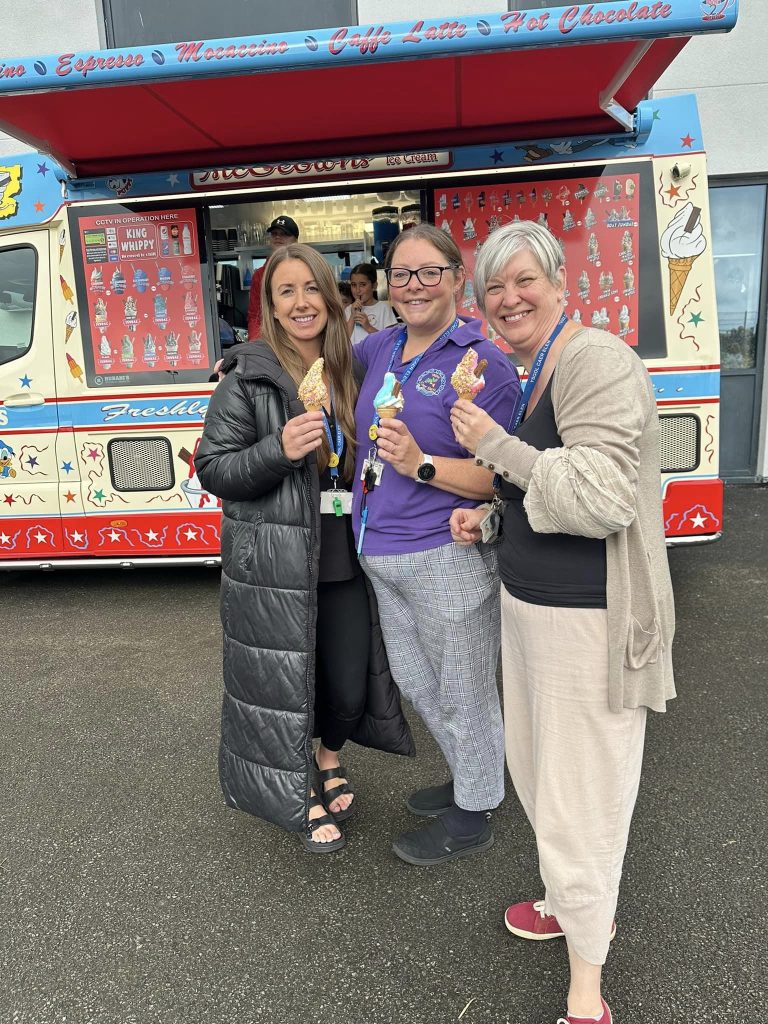
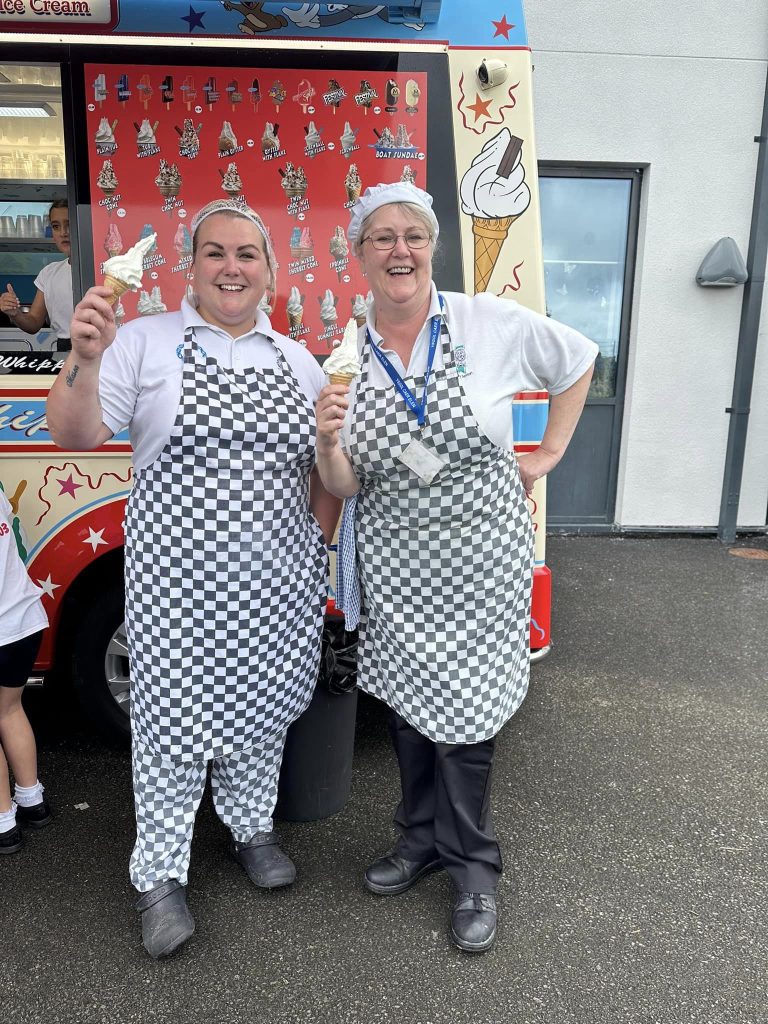

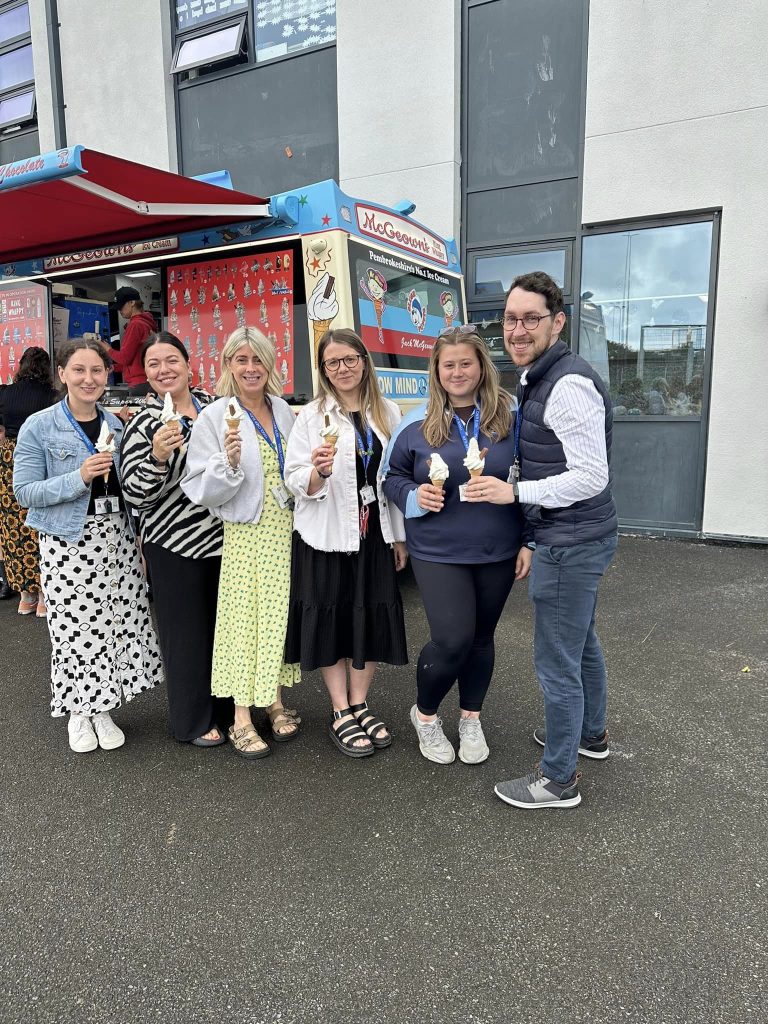

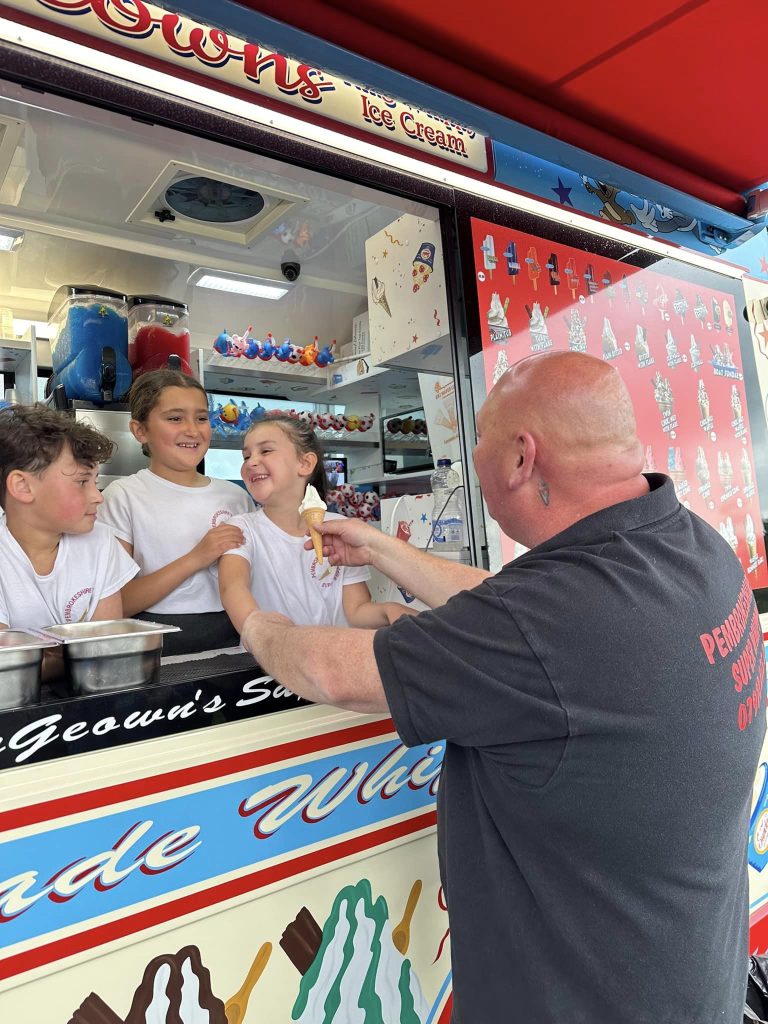
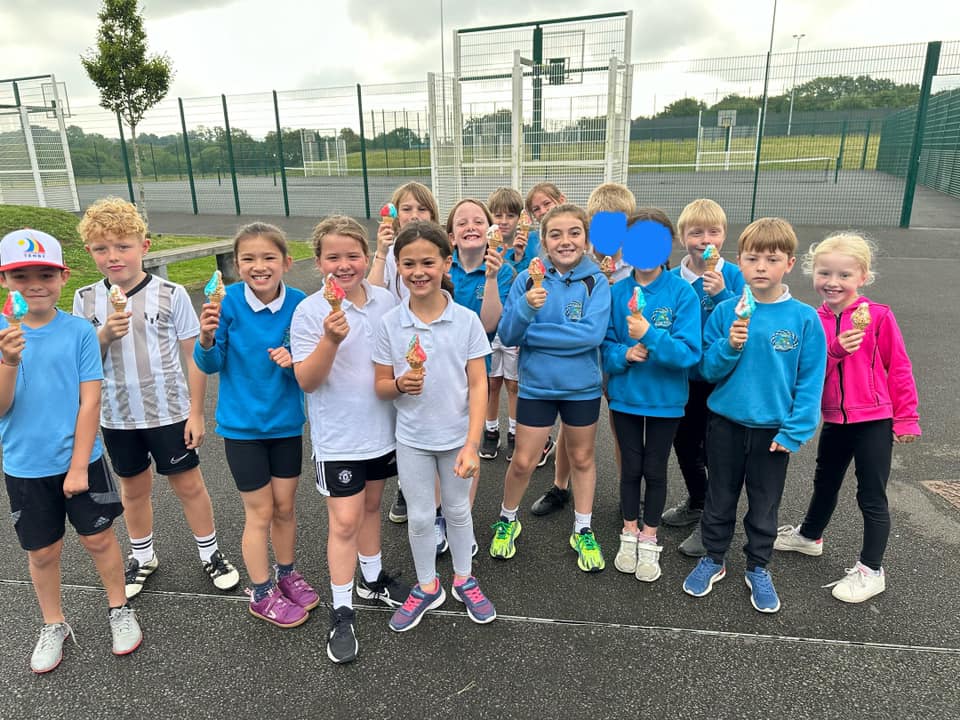
The school extends its heartfelt thanks to Mr McGeown and his family for their generosity and support. Their donation will play a crucial role in the continued development and success of school projects, benefiting all pupils.
“We are incredibly grateful to Mr McGeown and his family for their kindness and support,” said Mr Dafydd Hughes, the headteacher of Ysgol Caer Elen. “The ice cream treat brought immense joy to the children and added to the spirit of our summer celebrations.”
Ysgol Caer Elen, a pioneering Welsh-medium school catering to students from ages 3 to 16, prides itself on its vibrant community and commitment to high-quality education in Pembrokeshire. The school’s ethos centres on creating a caring and inclusive environment where every pupil is encouraged to achieve their best and develop their skills for the 21st century
The community looks forward to seeing the positive impact of the McGeown family’s contribution, as the school continues to thrive with the support of dedicated and caring individuals.
-

 Education5 days ago
Education5 days agoMilford Tesco worker achieves Oxford dream and lands top legal job
-

 Crime4 days ago
Crime4 days agoHaverfordwest man admits having nearly 1000 child and animal images
-

 Crime4 days ago
Crime4 days agoYouth set to appear in court over serious sexual offences
-

 Crime4 days ago
Crime4 days agoPolice investigating after man injured during altercation in cemetery
-

 Education4 days ago
Education4 days agoPupils delight in ice cream treat from Pembrokeshire’s number one van
-

 Crime4 days ago
Crime4 days agoTown centre ‘stinking of skunk’ as police strip cannabis farm
-

 Crime3 days ago
Crime3 days agoFag-butt police court summonses spark debate in Pembrokeshire
-

 News6 days ago
News6 days agoProposal to give firefighters a council tax discount to go to Cabinet






























